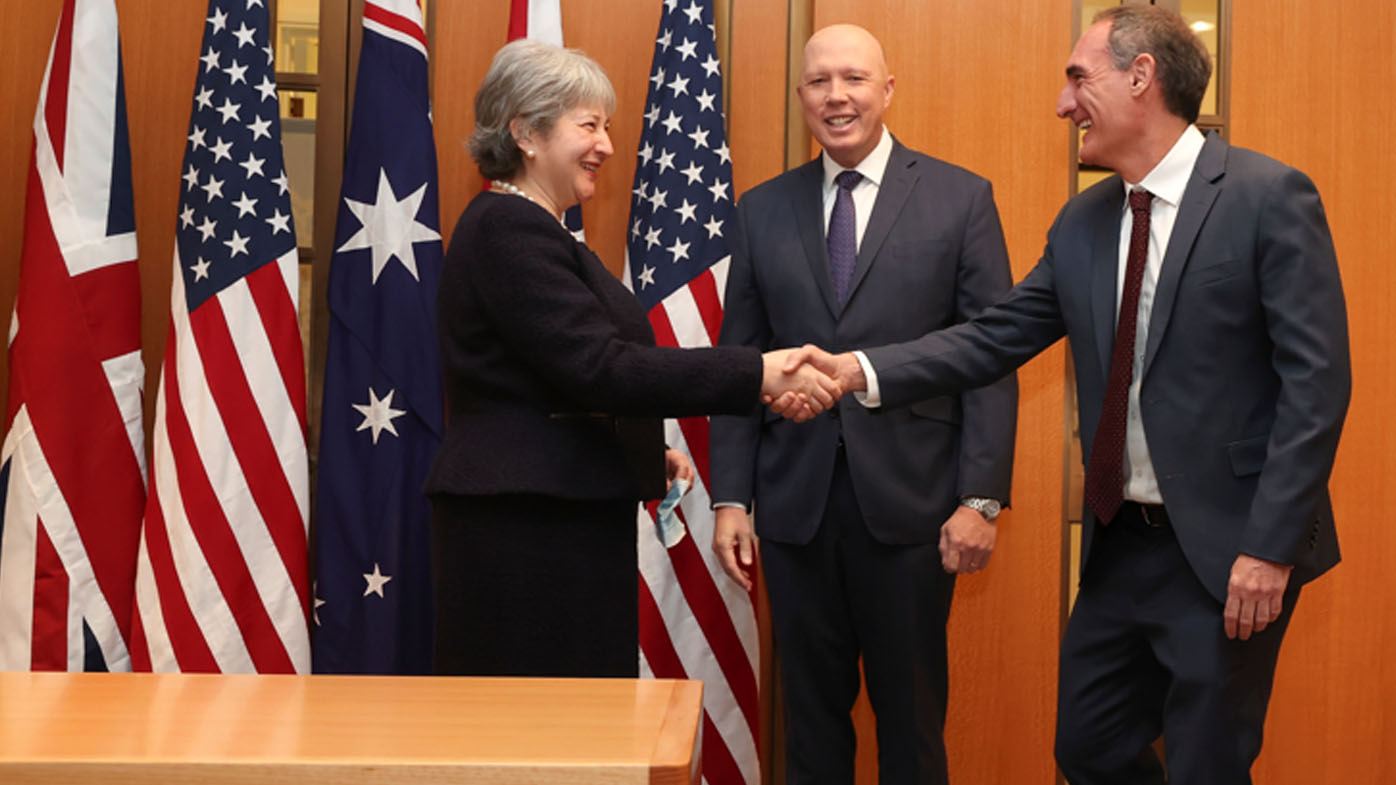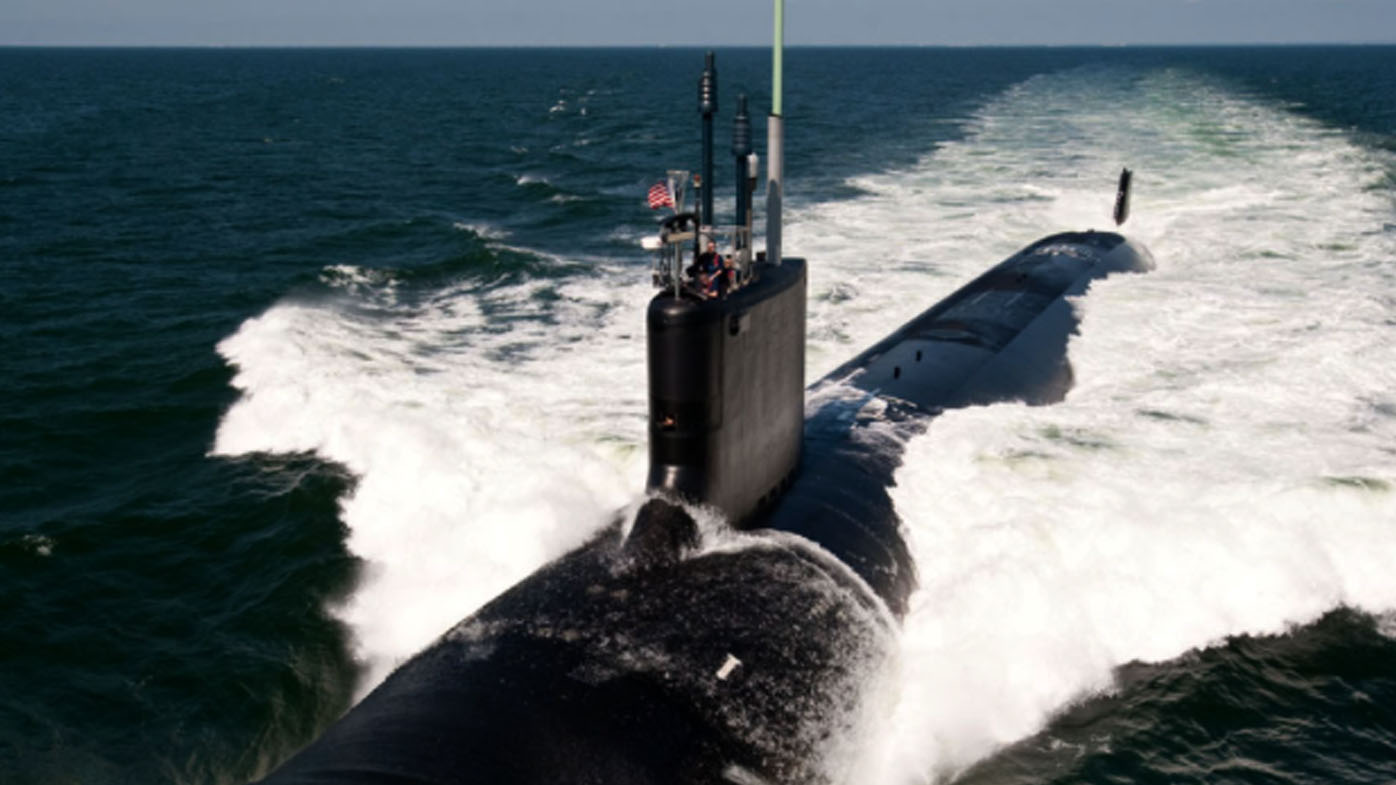Just hours after Australia took the next step to acquire nuclear-powered submarines under the controversial AUKUS agreement, China opened a bold diplomatic offensive.
It came after Defence Minister Peter Dutton signed a formal agreement with diplomats from the US and UK yesterday to enable the nations to share sensitive information about the vessels.
"This agreement will support Australia in completing the 18 months of intensive and comprehensive examination of the requirements underpinning the delivery of nuclear-powered submarines," Mr Dutton said.
LIVE UPDATES: Spike in Victorian coronavirus deaths

The deal marks the first time the UK and US have shared nuclear-powered technology with a third nation.
In a diplomatic response to the agreement, China's President Xi Jinping proposed a Southeast Asia nuclear weapon-free treaty.
Mr Xi announced his plan during a virtual summit of leaders from the Association of Southeast Asian Nations (ASEAN).
"China supports ASEAN's efforts to build a nuclear weapon-free zone, and is prepared to sign the Protocol to the Treaty on the Southeast Asia Nuclear Weapon-Free Zone as early as possible," Mr Xi Jinping said.
The Southeast Asia Nuclear Weapon-Free Zone is an agreement signed in 1995 between 10 Southeast Asian member-states.
READ MORE: Three days of thunderstorms set to lash Australia's east coast

China did not sign up to the deal which seeks to limit the development, manufacture and possession of nuclear weapons.
Chinese state-backed media said Mr Xi's diplomatic push was in response to the AUKUS agreement.
The Global Times described the defence pact between the three Western nations as "irresponsible behaviour of nuclear proliferation".
https://twitter.com/globaltimesnews/status/1462796824490639361?ref_src=twsrc%5EtfwAustralia's decision to acquire nuclear-powered submarines under the AUKUS pact triggered a major diplomatic row with France after scrapping a $90 billion contract for diesel-powered subs with a French defence company.
But Prime Minister Scott Morrison has insisted the deal is in the best security interests of Australia.
"This is a very important agreement for Australia's future security," Mr Morrison said.
"There are plenty of others who don't want to see this go ahead, and that, I think, tells you why it's so important that we do."
